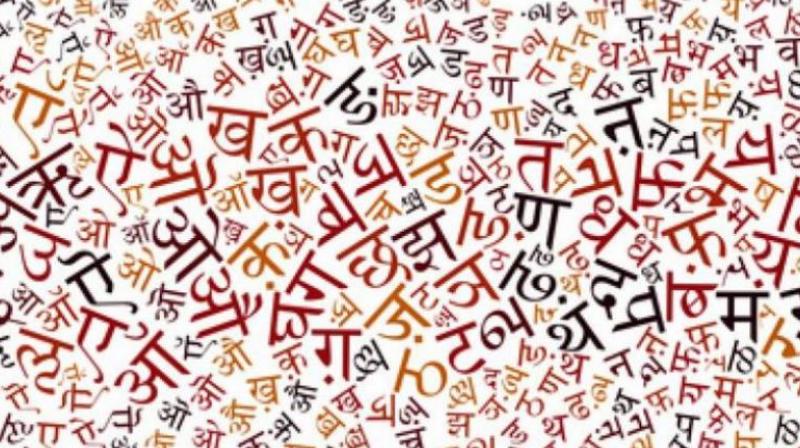Namma Chennai diary: Tamil Nadu is a different planet
The longest surviving ancient classical language never needed help from modern day politicians to exist.

Tamil is safe in Tamil Nadu and elsewhere too in southeast Asia where it is an official language in Sri Lanka, Malaysia and Singapore. The longest surviving ancient classical language never needed help from modern day politicians to exist. And it has flourished as the Tamil diaspora have taken it to the farthest ends of the world. There is little need to believe there was ever an existential threat to Tamil which dates back at least to the Sangam era (circa 300 BCE to 300 CE) and beyond to the Tamil Brahmi of the 5th century BCE
This clash with Hindi, a language derived from Sanskrit, is a modern phenomenon and under a century old and which can be traced to the beginning of the Justice Party and its movement. The agitation against Hindi snowballed when we were students in the 1960s leading to a watershed moment in Tamil Nadu’s history in which the national Congress party was voted out and then sidelined for the next 50 years and more.
Even in those violent anti-Hindi agitation days no one told us that we could not take Hindi as second language. Hindi was convenient for those in the Matriculation Board stream as we could score high marks in it as opposed to the mother tongue as Tamil papers were scrutinised intensely and less marks given. Hindi was a convenient education medium but it helped cope in extensive travel in a career reporting cricket in India and abroad too, particularly in Pakistan and UAE.
The usefulness of language as a communication tool far outdates the Google age of translation in which travel to Europe has become a lot easier. Studying Hindi was not seen as a crime then, even in Tamil Nadu. But there was much wistful regret that one didn’t keep pace with reading Tamil after having an early education in the medium in Thanjavur. As city dwellers we became part of the so-called English speaking elite, losing touch with Tamil, but in the process getting a nodding acquaintance with Hindi and a smattering of Sanskrit.
The point is nothing has changed in 52 years since leaving school. Even today, “a Tamil child studying in Tamil Nadu can finish schooling and higher education without learning a world of Tamil” as a fellow journalist wrote during the language row hat erupted last week when the draft education policy was unveiled. The hypocrisy of politicians speaking up on the issue and their kin who run private schools without having to teach a world of Tamil has been exposed often enough without making any impression on those who matter. It is, however, not so well kept a secret that any government in India will do anything to promote private enterprise at the cost of public welfare.
The sharp outcry in Tamil Nadu about the draft education policy caused by the inadvertent or deliberate placing of an old provision regarding the compulsory study of Hindi in non-Hindi states as the third language brought about a quick change of heart. The RSS ideologues may have been behind the original thrust of the propagation of the official language of Hindi, but they were not the ones consulted in the aftermath of the political outburst. It appeared the retreat was signalled from high up in the government that has foresworn any controversies in the early days of Modi 2.0.
Once the draft was modified, the need for feeling agitated should have become redundant. What we saw later as the tempo of a political attack amounting to language savagery far outstripping even chauvinism was maintained, it was clear that sheer politics had taken over. The chief minister’s reasoned plea asking for Tamil to be taught in other States was attacked to the point of his tweet being withdrawn, but the subject did not leave his mind. Such a request conforms to the matter of people being given the freedom to choose provided the framework for the option is provided. Of course, that would mean hiring a huge number of teachers elsewhere in the country.
The crux of the issue now is Tamil Nadu’s obsessive two-language fixation and the Centre’s three-language thrust. Given the emotions clouding the issue, it is difficult for a land of Dravidian politics to accept that they may have been wrong on the count of opposing Hindi for the sake of it. To have sought a freedom of choice in picking a language of education was an acceptable principle. To oppose Hindi tooth and nail like zealots was to betray a coat of brainwashing by politicians who whipped up passions to win votes and then abandoned the baby.
As Jayalalithaa once asked of her opponents - “Which schools did you send your children to?” The time has long gone for a latter-day anti-Hindi agitation because no cause exists now that the provision for imposition of Hindi has been scuttled. The State is no more voting on anti-god and anti-Hindi lines. What we have right now is an anti-Modi fixation in the State. Tamil Nadu is a different planet when compared to the rest of India and on several counts even so from immediate neighbours too.

